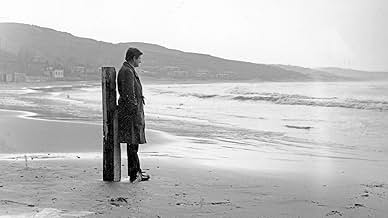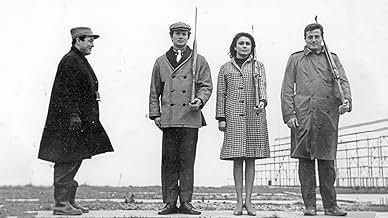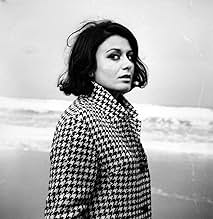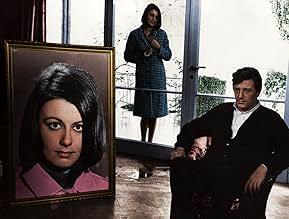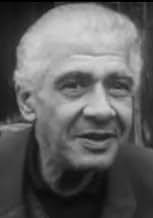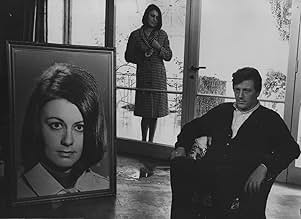IMDb RATING
7.9/10
7.9K
YOUR RATING
A poor painter falls in love with a photograph of a woman while at work in one of the massive villas on Istanbul's Princes' Islands.A poor painter falls in love with a photograph of a woman while at work in one of the massive villas on Istanbul's Princes' Islands.A poor painter falls in love with a photograph of a woman while at work in one of the massive villas on Istanbul's Princes' Islands.
- Director
- Writer
- All cast & crew
- Production, box office & more at IMDbPro
Storyline
Did you know
- TriviaIt couldn't be shown on the cinema because the film hadn't found a distributor.
- ConnectionsFeatured in Gise Memuru (2010)
- SoundtracksOrgan Music
Composed by Johann Sebastian Bach
Featured review
Erksan's usage of objects and symbols to create a contrast between Halil and Meral leads people to comment on these characters generally on the basis of their way of life in accordance with their cultural background and origin representing West and East. However, I think the very core of the different sights of these characters comes not from the set of cultural codes but from the unique sense of world-views appearing in their stances whenever there is an act of contact between two.
There is, however, a certain difference between these two as Meral's reaction to an emotion is something rather prepared and ordinary compared to Halil's point to make a beginning. Meral is nearly a stereotype from the life of a woman who is rich but depressed, having a relationship from her own circle but without the affection of an idealized love, looking for a way out, an adventure. With this kind of a state of mind, she never commences with the romance itself when she meets Halil, it is only a prepared starting point, a railway instead of a junction. She simply finds her reason to live, a story that is known from the beginning with no intention of a subjective initiative. I think this is the very reason that she is seen with her two friends in the beginning, three women, copies of a same kind.
Her picture, on the other hand, is something else. Her picture is Halil himself, his all reason, affection, story of a different origin. Halil starts off with this picture itself unlike Meral, as far as we know at least, because Meral's situation is given with her own statements when she talks to Basar as she explains that she already did not love him anyway and she was not thinking that people can love actually, and besides all these, her whole situation coming to existence only as a reaction, not as a construction. This difference creates the possible conflict expected between two characters which is later destroyed by the movie's melodramatic tendencies, unfortunately.
Halil's stance and perspective differ greatly from that of Meral's and many people as well. He reveals an awareness of a certain progress presenting a blurred sense of inanimation filling the space for an irrationalized status of an emotional story that which we call love as inanimation creates a necessity for a subject to be aware of his own effort leading to a progress as opposed to the animate circumstance of two subjects inside the same story. By creating and constructing his own story Halil has a unique sense of authority of his life collecting emotions from an unprecedented source unlike a ubiquitous presence of a romance.
Apart from all these, Halil's well-established stance towards love and life and the movie's originality, in the time of a melodramatic madness in Turkish cinema, cannot escape from that fictitious and synthetic atmosphere. That destruction vitiates the movie beyond measure. It may be about the production problems for Metin Erksan, but without a doubt that melodramatic sense of storytelling debases the movie.
There is, however, a certain difference between these two as Meral's reaction to an emotion is something rather prepared and ordinary compared to Halil's point to make a beginning. Meral is nearly a stereotype from the life of a woman who is rich but depressed, having a relationship from her own circle but without the affection of an idealized love, looking for a way out, an adventure. With this kind of a state of mind, she never commences with the romance itself when she meets Halil, it is only a prepared starting point, a railway instead of a junction. She simply finds her reason to live, a story that is known from the beginning with no intention of a subjective initiative. I think this is the very reason that she is seen with her two friends in the beginning, three women, copies of a same kind.
Her picture, on the other hand, is something else. Her picture is Halil himself, his all reason, affection, story of a different origin. Halil starts off with this picture itself unlike Meral, as far as we know at least, because Meral's situation is given with her own statements when she talks to Basar as she explains that she already did not love him anyway and she was not thinking that people can love actually, and besides all these, her whole situation coming to existence only as a reaction, not as a construction. This difference creates the possible conflict expected between two characters which is later destroyed by the movie's melodramatic tendencies, unfortunately.
Halil's stance and perspective differ greatly from that of Meral's and many people as well. He reveals an awareness of a certain progress presenting a blurred sense of inanimation filling the space for an irrationalized status of an emotional story that which we call love as inanimation creates a necessity for a subject to be aware of his own effort leading to a progress as opposed to the animate circumstance of two subjects inside the same story. By creating and constructing his own story Halil has a unique sense of authority of his life collecting emotions from an unprecedented source unlike a ubiquitous presence of a romance.
Apart from all these, Halil's well-established stance towards love and life and the movie's originality, in the time of a melodramatic madness in Turkish cinema, cannot escape from that fictitious and synthetic atmosphere. That destruction vitiates the movie beyond measure. It may be about the production problems for Metin Erksan, but without a doubt that melodramatic sense of storytelling debases the movie.
- samkoseoglu
- Oct 17, 2018
- Permalink
- How long is Time to Love?Powered by Alexa
Details
- Runtime1 hour 26 minutes
- Color
- Aspect ratio
- 1.37 : 1
Contribute to this page
Suggest an edit or add missing content



